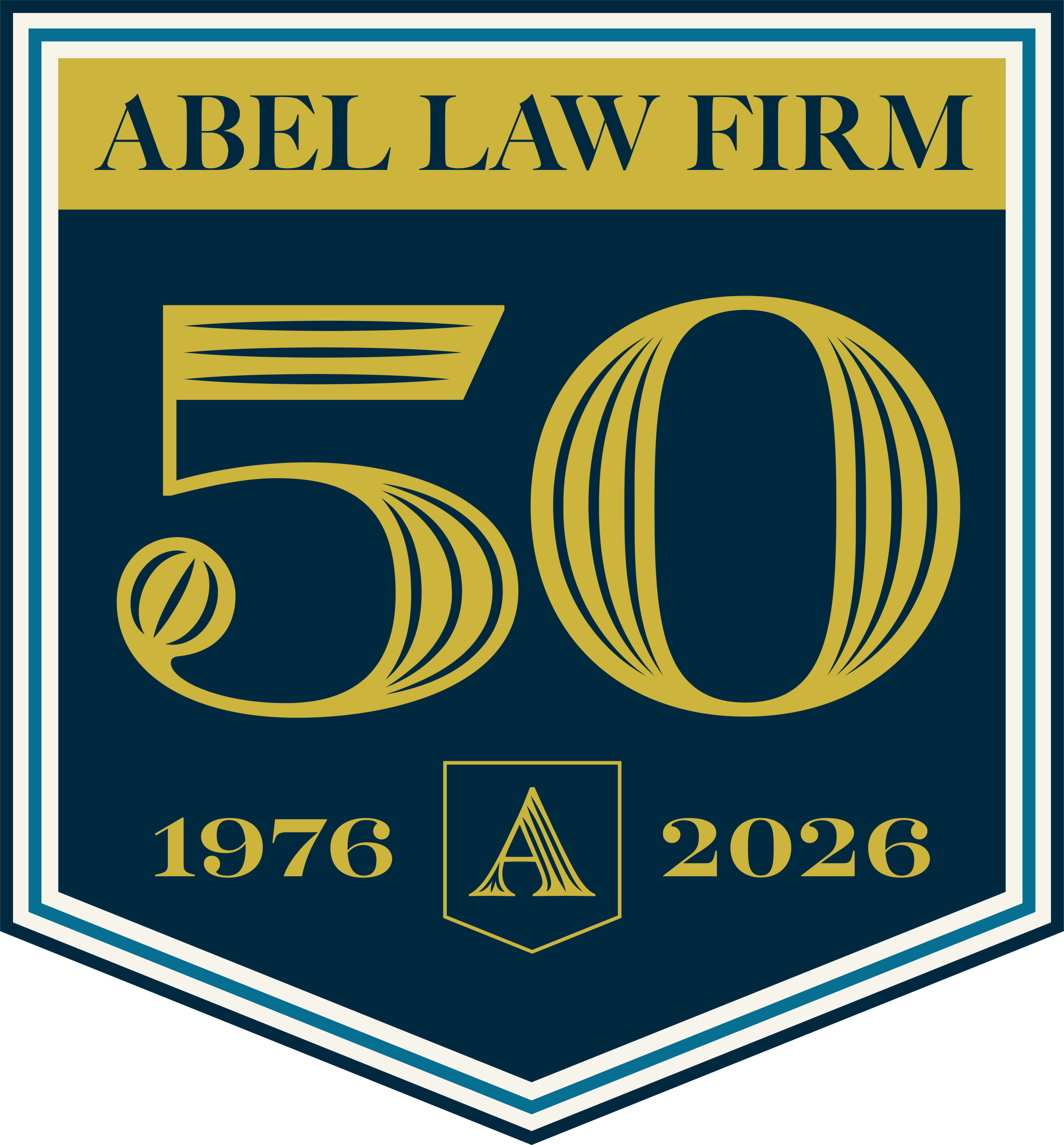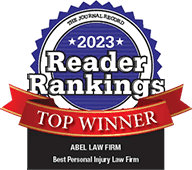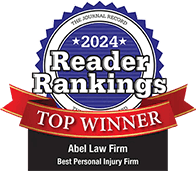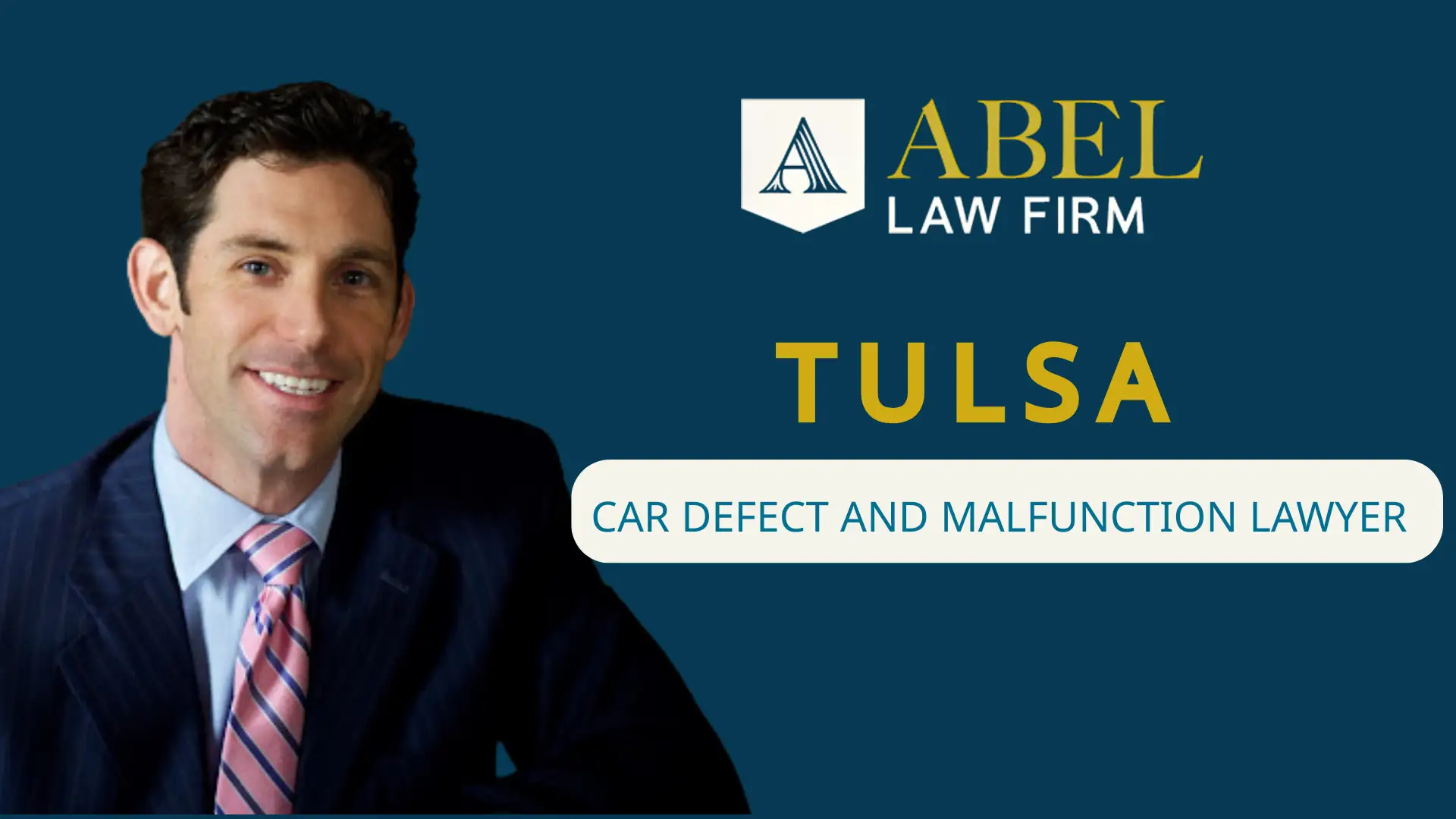

When a vehicle defect causes an accident, the consequences can be devastating. Brake failures at highway speeds, airbag malfunctions, tire blowouts, and sudden acceleration incidents injure thousands of drivers and passengers every year. Unlike accidents caused by driver error, defective vehicles represent a failure by manufacturers to prioritize safety. At Abel Law Firm, we hold manufacturers accountable for these failures. Our team has spent nearly 50 years recovering compensation for injured Oklahomans, and we bring that experience to every product liability case. If a vehicle defect injured you or a loved one, we offer a free consultation with no upfront fees. We only get paid if we win your case.
Why You Need an Attorney for Manufacturer Liability Cases
Manufacturer liability cases are complex and require specialized expertise. Manufacturers employ teams of corporate lawyers whose job is to minimize liability and protect company profits. They have resources to hire expert witnesses, conduct their own investigations, and mount aggressive defenses. Without an experienced attorney, you’ll be outmatched.
An experienced product liability attorney brings several critical advantages. First, we understand the technical aspects of vehicle defects. We work with engineers and accident reconstruction specialists who can explain how a defect occurred and why it caused your injury. Second, we know how to investigate manufacturer conduct. We can obtain internal documents, testing data, and communications that reveal whether the manufacturer knew about the defect before your injury. Third, we understand settlement negotiations with manufacturers and their insurance companies. We know what cases are worth and when to reject inadequate settlement offers.
At Abel Law Firm, our attorneys bring decades of experience in product liability litigation. T. Luke Abel has been recognized as Lawyer of the Year for Product Liability by Best Lawyers in America, reflecting his exceptional expertise in holding manufacturers accountable. Kelly Bishop, a Super Lawyer for 13 consecutive years, brings peer-recognized expertise to every case. Our team has successfully handled complex product liability cases, including a significant recovery in a Black & Decker product defect case that demonstrates our ability to take on major manufacturers.
We also work on a contingency fee basis, which means you pay no upfront fees and no attorney fees unless we win your case. This aligns our interests with yours—we only get paid if we recover compensation for you. You don’t have to worry about affording legal representation while you’re recovering from your injury.
Why Vehicle Defects Cause Serious Injuries
Vehicle defects are fundamentally different from accidents caused by driver error. A defect is a flaw in the vehicle’s design, manufacturing, or marketing that makes it unreasonably dangerous—regardless of how carefully a driver operates the vehicle. When a brake system fails, when an airbag deploys unexpectedly, or when a tire blows out due to a manufacturing defect, the driver has no control over the outcome.
These defects cause catastrophic injuries because they eliminate the safety systems drivers depend on. A brake failure at 60 miles per hour gives a driver seconds to react. A defective airbag that fails to deploy leaves occupants unprotected in a collision. A tire blowout on the highway can cause a vehicle to roll or collide with other cars. The injuries resulting from these defects—spinal cord damage, traumatic brain injuries, amputations, and wrongful death—often change lives permanently. According to the National Highway Traffic Safety Administration (NHTSA), vehicle defects contribute to thousands of serious injuries annually.
Common Types of Car Defects and Malfunctions
Defective vehicles can fail in numerous ways. Common defects include:
- Brake system failures – Complete loss of braking power or brake fade
- Tire defects and blowouts – De-treading, manufacturing flaws, or design defects
- Airbag failures – Failure to deploy, premature deployment, or inadequate protection
- Seatbelt defects – Failure to lock, separation from anchor points, or design flaws
- Sudden unintended acceleration – Vehicle accelerates without driver input
- Roof crush injuries – Structural failure during rollover accidents
- Door latch failures – Doors opening during collisions
- Electrical system failures – Loss of power steering, power brakes, or lighting
- Steering system defects – Loss of steering control or excessive play
- Suspension failures – Broken components causing loss of vehicle control
Each of these defects represents a failure by the manufacturer to design, manufacture, or warn about a known hazard. When these failures result in injury, manufacturers must be held accountable. The Federal Motor Vehicle Safety Standards (FMVSS) establish minimum safety requirements that manufacturers must meet.
Understanding Product Liability in Car Defect Cases
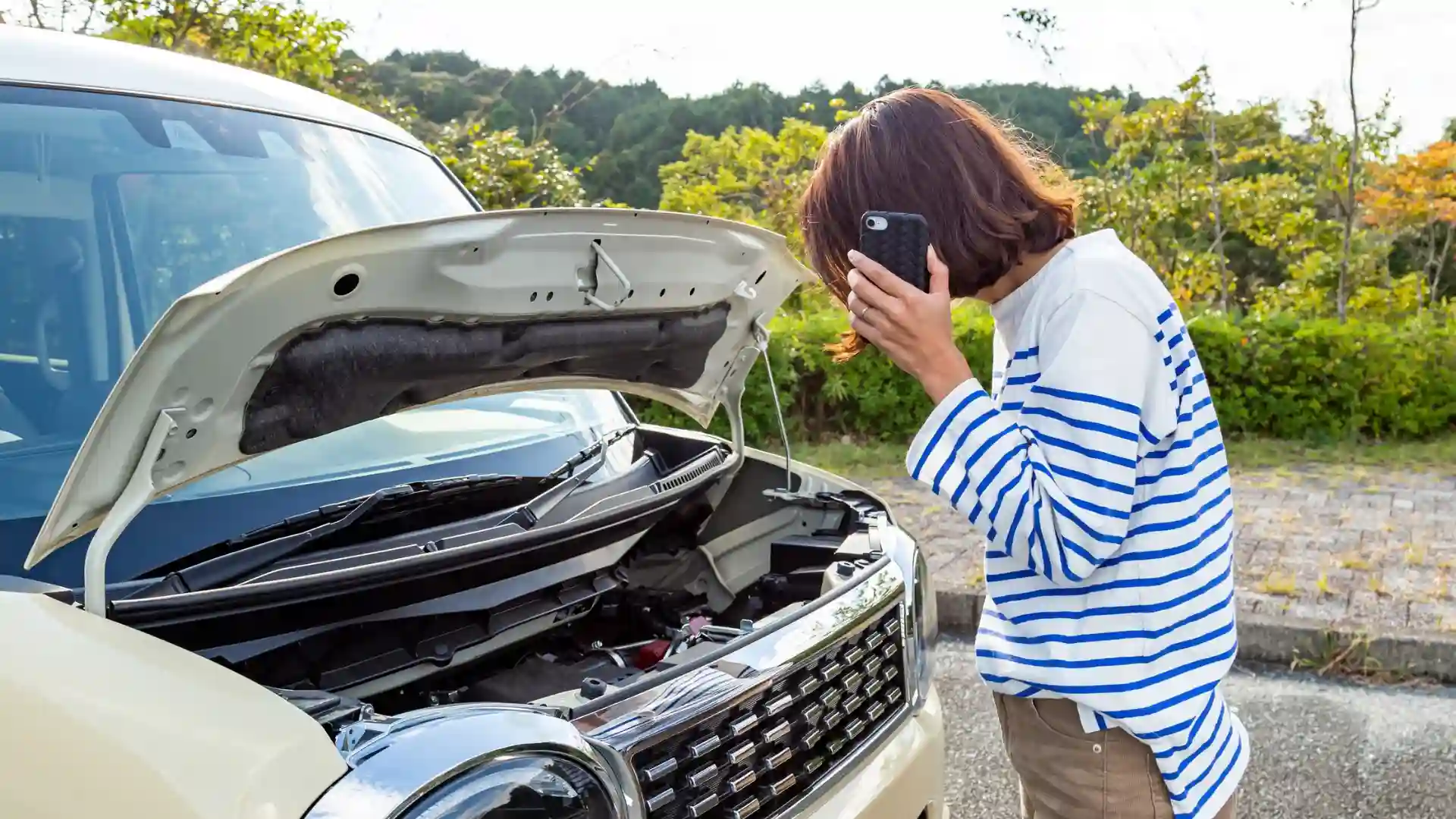

Product liability law holds manufacturers responsible for defective products that cause injury. This differs from negligence law in that it doesn’t require proving the manufacturer was careless—only that the product was defective and caused harm. This distinction is crucial in car defect cases because manufacturers often have extensive safety testing and design processes. Product liability law recognizes that even with these processes, manufacturers sometimes prioritize cost over safety or fail to warn consumers of known hazards.
In Oklahoma, product liability cases are governed by strict liability principles. This means a manufacturer can be held liable for injuries caused by a defective product even if the manufacturer exercised reasonable care in designing and manufacturing the vehicle. The focus is on whether the product was defective, not on whether the manufacturer was negligent. Our Tulsa personal injury attorneys understand these nuances and apply them to every case.
Three Types of Defects That Create Manufacturer Liability
Manufacturing Defects occur when a vehicle deviates from its intended design during production. For example, a brake line might be installed incorrectly, or a weld might fail to meet specifications. These defects affect only some vehicles in a production run, but they create serious safety hazards for the affected owners.
Design Defects exist when the vehicle’s design itself is inherently unsafe. A design defect affects all vehicles of that model and year. For example, if a manufacturer designs a fuel tank that ruptures too easily in rear-end collisions, every vehicle with that design is defective. Design defects often involve trade-offs between safety and cost—manufacturers choose the cheaper option even though a safer design exists.
Marketing Defects occur when a manufacturer fails to warn consumers of known hazards or fails to provide adequate instructions for safe use. If a manufacturer knows a vehicle has a tendency to stall in certain conditions but doesn’t warn owners, that’s a marketing defect. Similarly, if a manufacturer fails to issue a recall for a known defect, that can constitute a marketing defect. These failures expose consumers to unreasonable risks and form the basis for product liability claims.
How Manufacturers Can Be Held Accountable
Manufacturers have a legal duty to design vehicles that are reasonably safe for their intended use. They also have a duty to manufacture vehicles according to their specifications and to warn consumers of known hazards. When manufacturers breach these duties and someone is injured, they can be held accountable through product liability litigation.
The key principle in product liability law is that manufacturers cannot escape responsibility by claiming they didn’t know about a defect. If a defect exists and causes injury, the manufacturer is liable. This is particularly important in car defect cases because manufacturers often have internal testing data, consumer complaints, and engineering analyses that reveal defects long before they cause injuries. When manufacturers ignore this information or fail to issue recalls, they are choosing profit over safety.
Manufacturers also cannot escape liability by arguing that a driver should have noticed the defect or driven more carefully. Product liability law recognizes that drivers depend on vehicles to function safely. A driver cannot be expected to anticipate a brake failure or an airbag malfunction. The responsibility for vehicle safety rests with the manufacturer. This is why car accident victims deserve experienced legal representation. If you or a loved one has suffered from a car accident, contact our Tulsa car accident lawyers for a free initial consultation.
What You Need to Prove in a Car Defect Claim
Winning a product liability case requires proving specific elements. While the burden of proof is on the injured party, the elements are straightforward and based on common-sense principles about product safety.
Elements of a Successful Product Liability Case
The product was defective. You must prove the vehicle had a manufacturing defect, design defect, or marketing defect. This often requires expert testimony from engineers or accident reconstruction specialists who can explain how the vehicle failed to meet safety standards.
The defect existed when the vehicle left the manufacturer. The defect must have been present when the vehicle was manufactured, not something that developed later due to poor maintenance or misuse. This is why vehicle maintenance records and the vehicle’s history are important.
The defect was the direct cause of your injury. You must establish a causal connection between the defect and the accident. For example, if a brake failure caused you to collide with another vehicle, you must prove that the brake failure directly caused the collision.
You suffered damages as a result of the defect. You must document your injuries, medical treatment, lost wages, and other losses. This includes both economic damages (medical bills, lost income) and non-economic damages (pain and suffering, emotional distress). Learn more about economic vs non-economic damages from our resources.
You used the vehicle in a reasonably foreseeable manner. You don’t need to prove you used the vehicle perfectly, only that you used it in a way the manufacturer should have anticipated. Driving on public roads at normal speeds is a foreseeable use of a vehicle.
Compensation Available for Defective Vehicle Injuries
When a vehicle defect causes an injury, the law allows recovery for all damages resulting from that injury. This includes both economic losses and non-economic losses.
- Medical expenses cover all treatment related to your injury, including emergency care, hospitalization, surgery, rehabilitation, and ongoing medical treatment. If your injury requires future medical care, you can recover the estimated cost of that care as well.
- Lost wages compensate you for the income you lost while recovering from your injury. If your injury prevents you from returning to work, you can recover lost earning capacity—the income you would have earned over your lifetime if not for the injury.
- Pain and suffering compensates you for the physical pain and emotional distress caused by your injury. This includes both the acute pain immediately following the injury and chronic pain that may persist long-term.
- Permanent disability or disfigurement is compensated separately because it affects your quality of life indefinitely. Scarring, loss of limb, paralysis, and other permanent injuries warrant substantial compensation.
- Property damage covers the cost of repairing or replacing your vehicle. If the vehicle is a total loss, you recover its fair market value.
- Emotional distress may be recoverable if you witnessed the injury of a loved one or suffered psychological trauma from the accident.
In some cases involving gross negligence or intentional misconduct, courts may award punitive damages designed to punish the manufacturer and deter similar conduct in the future. Our case results demonstrate our success in recovering substantial compensation for injured clients.
Oklahoma’s Statute of Limitations for Car Defect Claims
Oklahoma law imposes a strict deadline for filing product liability claims. You have two years from the date of your injury to file a lawsuit. This deadline is absolute—if you miss it, you lose your right to recover compensation, regardless of the strength of your case.
This two-year window may seem like plenty of time, but it passes quickly. You need time to recover from your injury, seek medical treatment, and consult with an attorney. Your attorney needs time to investigate the defect, retain expert witnesses, and prepare your case. Insurance companies know about this deadline and often use it as leverage in settlement negotiations, hoping you’ll miss the deadline and lose your claim entirely.
Acting quickly protects your rights. The sooner you contact an attorney, the sooner we can begin investigating the defect, preserving evidence, and building your case. Evidence can disappear—vehicles are scrapped, witnesses move away, and memories fade. Early investigation ensures we capture all available evidence.
Frequently Asked Questions
What is the difference between a car defect and driver error?
A car defect is a flaw in the vehicle’s design, manufacturing, or marketing that makes it unreasonably dangerous. Driver error is a mistake made by the operator. Defects are beyond the driver’s control. You cannot prevent a brake failure or an airbag malfunction through careful driving. Driver error, by contrast, results from the driver’s actions or inactions. Product liability law recognizes this distinction and holds manufacturers responsible for defects, not for driver mistakes.
How long do I have to file a car defect claim in Oklahoma?
You have two years from the date of your injury to file a product liability claim in Oklahoma. This deadline is strictly enforced. If you miss it, you lose your right to recover compensation. This is why it’s important to contact an attorney as soon as possible after your injury. Early consultation ensures we have time to investigate, gather evidence, and prepare your case before the deadline approaches.
Do I have to pay attorney fees upfront?
No. Abel Law Firm works on a contingency fee basis. You pay no upfront fees, no hourly rates, and no attorney fees unless we win your case or reach a settlement. This means you can pursue your claim without worrying about affording legal representation while you’re recovering from your injury. We only get paid if you get paid.
Contact Abel Law Firm for Your Free Consultation
If a vehicle defect injured you or a loved one, don’t wait. Contact Abel Law Firm today for a free consultation. We’ll review your case, explain your legal options, and answer your questions about the product liability process.
Since 1976, Abel Law Firm has held manufacturers accountable for defective products. We’ve recovered millions in compensation for injured Oklahomans, and we’re ready to fight for you. Our team works on a contingency fee basis—no upfront costs, no fees unless we win. We’re available 24/7 to discuss your case. Call us today at (918) 777-7046 or fill out our online contact form to schedule your free consultation. The statute of limitations deadline is approaching, and early action protects your rights. Let Abel Law Firm help you recover the compensation you deserve.

